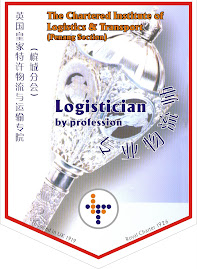Mediocre and Extreme Issues
It is often of concern for individuals involved in the training and practise of mediation and negotiation to witness how negotiators (even after being trained for several days) still get bogged down in issues that are ‘trivial’ to the central objective or frame. For example, management and labour unions are often drawn into conflict over an extra month maternity leave while less than 2% of their work force is female (and 1% of those are less than 45 years old). Buyers and sellers, in renegotiating an annual contract, often experience outdrawn conflict over penalty clauses while they’ve had an effective relationship for the past ten years! Furthermore a couple, while participating in a mediation about the details of their divorce, fight about the liabilities and not the assets!
Taleb (2007), in his sceptical book on probability theory, ‘The Black Swan’, provides an important view on the kind of data that individuals work with (and how they perceive it) in forecasting or planning. Negotiators, like economists and others, also use available information, expected information and simply guesswork to plan and strategise the outcome of future events.
Taleb (2007, 35) distinguish between two types of data; mediocre and extreme. He makes the analogy that we can often plan the outcome of mediocre variables with an acceptable degree of probability. We can, for example, predict with a fair degree of accuracy, a somewhat linear relationship between rise in annual sales and profitability; or at least draw some sort of bell curve that will indicate the relationship between increased sales and increased capital expenditure.
We could, perhaps, predict, with a moderate degree of probability, the influence of price versus quality in a negotiation between a supplier and a company buyer. We cannot, unfortunately, according to Taleb (2007, 35) predict ‘extreme’ variables (such as exchange rates six months from now) in the same way. We have almost no ability in predicting the influence of some occurrences (plant breakdowns, management changes, staff illness, negotiator emotions, etc) that are ‘black swans’ (extreme cases).
Extreme issues could also be what was traditionally regarded as ‘plannable’ or ‘rational’ such as ‘financial sense’, price, penalty clauses, quality, delivery time, projected sales, payment terms, management changes; in fact, extreme issues could be almost anything depending on the kind of deal that is being negotiated.
How, for example, could any negotiator, politician, historian or economist have predicted the 2008 market crash and financial crises that followed it? This unpredictability possibly has changed many a good deal into a bad one during the past six months.
We do not seem to be good at all in predicting. Especially if we use past data and ‘mediocre statistics’ to predict extreme occurrences (and negotiating could heed extreme behaviours).
For example, who would have predicted in January 2008 that negotiating a merger with a mortgage bank could turn bad, yes, very bad in October 2008. No planning, as is often recommended in books on negotiation and mediation, would have helped negotiators in the past year in any way.
A Planning Method for the Unexpected
Although Taleb accepted that there are very little one can do about the occurrence of ‘Black Swans’ in project planning, in forecasting and in most forms of future planning, he does propose a ‘grey solution’ by accepting . that the unexpected will occur . and then hedging for the 15% unexpected. For the remaining 85% he proposes a conservative approach, in other words, carefully and meticulous information gathering and planning.
With the above notion in mind, Spoelstra (2008) conducted a series of practical ‘experiments’; asking one group of negotiators in training sessions to make use of one method of planning: The method can be called . ‘traditional’ . as it is based on the ‘older’ or ‘traditional method of identifying, weighing and prioritising issues (Lewicki and Litterer, 1985, 60, Bazerman and Neale, 1992, 17). Secondly, he asked another group to plan according to what he calls the ‘Black Swan’ method (due to a lack of a better description).
The ‘Black Swan’ method involves that negotiators, during preparation, list issues and then divide them in ‘mediocre’ (the known) and ‘extreme’ (the deal breakers or the known unknown). Mediocre issues (those they can predict) would in some cases represent 90% of issues. Extreme issues would, in rare case be as many as 20% of the issues.
After negotiators have divided their issues into extreme and mediocre, Spoelstra made them plan to do ‘horse-trading’ of ‘mediocre’ issues, based on reciprocity. He further tried to commit negotiators never to turn mediocre issues into major conflict and to exercise extreme flexibility (because they were mediocre anyway).
On the other hand he demanded from negotiators to develop as many creative alternatives, ‘hedging systems’ and ‘different approaches’ to extreme variables.
The consequences of this approach was that negotiators were seldom drawn into conflict about non-essential issues and focused on those issues that really matter, resulting in significant more resolutions.
The results of this ‘narrative’ experiment’ seem to head significant better results than the ‘traditional’ approach of ranking and prioritising issues and by using the reasoning of Taleb.
Bibliography:
Bazerman, M H, and Neal, M N; 1992; Negotiating Rationally; The Free Press; New York.
Lewicki, R J, and Litterer, J A; 1985; Negotiation; Richard D Irwin, Inc, Illinois.
Spoelstra, H I J; 2008, The Effect of Different Methods of Preparation in Negotiation Outcomes; Unpublished Report, International Negotiation Academy, South Africa.
Taleb, N N; 2007; The Black Swan: The Impact of the Highly Improbable; Penguin; London.
Source: Prof Manie Spoelstra, who has published numerous articles and books on negotiation, general management, strategy formulation and participative management, and has often consulted to many leading companies on these topics. By regularly attending advanced seminars at institutions such as the Harvard Center for Management Research in Boston and the Stanford Business School in San Francisco, and by continuing to teach negotiation at the Witwatersrand Business School and the Rand Afrikaans University, he has maintained his intellectual prowess and has ensured that the courses the International Negotiation Academy offer are consistently of the highest international standard.
.jpg)









No comments:
Post a Comment